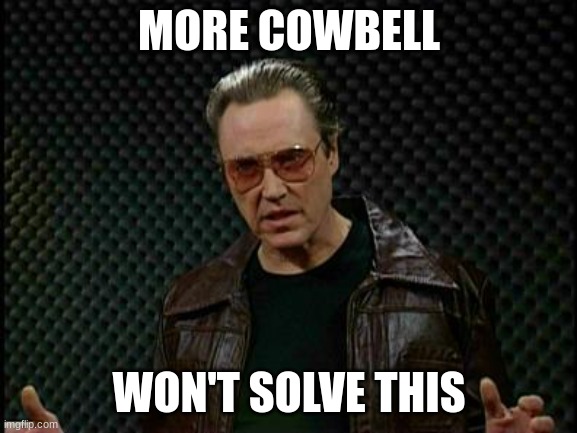Preview: Why goals suck, and how you can create lasting positive change in your life by focusing on small daily actions that will make the desired end result inevitable.
Your Facebook feed is predictably filled with your friends’ New Year’s Resolutions. Instagram influencers are sharing their “Ins and Outs” for 2024, their word of the year, and the goals that they’ll smash in the upcoming months.
And every guru loses their mind telling you they have the secrets to a happy life, if you’d only purchase their overpriced course (for a limited time before the price jumps!).
If you’re a goals girl and love making resolutions, I’m happy for you. Feel free to skip this post.
But if all of this goal-setting noise exhausts you, makes you prowl the kitchen for a Trader Joe’s almond croissant, or feel generally less-than, read on to find out why goals can suck.
Table of contents
Self-Help is a Jerk
A couple of years ago I shared why I broke up with the personal growth industry.
I hope you read the article, but if you don’t, here’s the TL;DR:
- The self-help industry is a money making machine that feeds on insecurities and creates perpetual customers.
- It tells you that you’re not good enough (and therefore, need their products).
- It’s a poor substitute for what truly works to improve your life (therapy and self-acceptance).
- It’s cultish: it elevates a guru, and sets up an Us vs Them mentality.
- It delegitimizes negative emotions and encourages toxic positivity.
I still feel this way.
My personal growth obsession was an outgrowth of my good-girl religious upbringing, where I was indoctrinated by a Christian cult that I was a “good for nothing slave“, and nothing I did was ever enough. I deserved death, I was wicked, a “little enemy of God“, even as a baby.
I detest such thinking now. But in the past, my goal-setting efforts came from this place of not-enoughness.
And I’m not alone in this assessment. I see it more and more from people I admire.
For example, Chris Guillebeau, entrepreneur, digital nomad and best-selling author of several great books, said this in a recent newsletter:
I’d spent a lot of time learning to be productive, but after a while I began to realize that such a quest could be endless. There was always something more to be done…
Eventually, I realized I had internalized a system that was fundamentally flawed. This system was called modern productivity…
Most productivity methods—which I’d avidly followed, for years!—are actually counterproductive. Not only can they be unhelpful, they can actually introduce harm (you end up feeling guilt/shame/self-loathing because the method doesn’t work for you).
Chris Guillebeau
If you’ve set goals only to be discouraged when you don’t achieve them, it’s not because you’re a loser. You’re not lacking willpower or discipline. It’s because goals cause us to focus on the wrong thing.
I’m still not setting goals. Here’s why, and what I do instead to create the life I want.
Healing Over Optimizing
A lot has been said about post-pandemic survival mode, with good reason. Our species has just gone through a collective trauma.
Trying to set goals can feel overwhelming to someone healing trauma. Safety must come before optimization.
I love what Cara and Rachael (former Evangelical church pastors who left their faith) of HappyWholeWay said about not setting goals this year:
You were taught to think that “healing” means curing yourself of your flaws (through God, of course). This programming trained you to think that you should become the opposite of who you are, especially any time any indication of being human presented itself.
But what if healing didn’t look like that same perfectionistic journey, but rather became an act of caring for yourself instead? Because the hard truth is that you can’t heal yourself out of being human. And for someone who was trained to constantly fight her humanity, the most radical act you can do is to instead learn how to embrace it.
HappyWholeWay, LLC
I couldn’t put it better myself. Now, when I decide what I want from my life, it comes from a fundamentally (pun intended!) different place.
Two things:
- I’m already enough. If I never changed or improved anything, that’s ok. I’m worthy, regardless.
- If I want to change something (for example, doing a no-spend month to save money), it’s an act of self-compassion.
It Ain’t Natural
I read an Instagram post recently that I loved. You can see it here. The author states that setting goals in winter goes against nature and our biology.
We’re mammals. And we’re deeply sensitive, like all animals, to seasons and our environment.
Mammals don’t set goals in winter.
They burrow, rest deeply, and conserve energy until spring, when it feels natural and easy to engage in bursts of activity.
That adds up for me.

Goals Focus on the Wrong Thing
One of my favorite authors, James Clear, says:
If you want better results, then forget about setting goals. Focus on your system instead.
James Clear, Atomic Habits
As an example, I’ve been able to manage my weight, not by setting a goal, but by building an effective system: a daily habit of walking, and lifting light weights three times a week.
Instead of setting a goal, I ask:
- What do I want?
- What is the smallest daily action I can take, that will lead inevitably to that?
Automation is a system. It works especially well in saving for retirement.
The smallest daily actions bit? That’s crucial. More on that in a sec. First:
Automate It
Some goals can more or less be put on autopilot.
In one study, nearly 50% of Americans “intend to make a resolution to manage their money better or save more in the coming year.”
Saving more money for retirement could be as simple as setting up monthly, automatic withdrawals from your checking account or paycheck to a retirement account.
That’s a one-off task, but it makes the goal of “more retirement savings” inevitable. It renders the drugged monkey (fun at parties, but highly unreliable!) known as willpower unnecessary.
Some people opt to move a portion of their money to a savings account early in the month, so they’re forced to live on what’s left for the rest of the month. If budgeting makes you want to hurl, this might work better for you.
Go Tiny
In addition to Atomic Habits, the other book that shook my ideas about goals forever is Tiny Habits by B.J. Fogg.
Even if you don’t know his name, Fogg has already impacted your daily life. He’s a scientist and professor at Stanford University, founder and director of the Stanford Behavior Design Lab. Some of his students went on to found Instagram, Facebook apps, and the Gmail inbox.
The brain hijack causing you to scroll social media when you don’t want to? It can be leveraged to help you change your life in positive directions.
Using the above example of exercise, I didn’t become a daily exercise person (successfully for the last three years) by setting a lofty goal.
I decided that no matter what, I would get on my stationary bike for 60 seconds a day. Literally. 60 seconds. Sounds ridiculous, right?
Tiny habits work because they don’t cause the brain to go into fight/flight/freeze mode.
When we set a goal, our brain immediately attempts to sabotage. Why?
Fear. Fear of failing, fear of looking stupid, fear of change, fear of rejection by others.
We’re no different than Temple Grandin’s cows. (What in the world are you on about, Carrie?) Let me explain.
Temple Grandin is a doctor of science, author, animal rights activist, and autism spokesperson (who is herself autistic). If you haven’t seen the award-winning movie about her life yet, you must make it a goal (har har).
She discovered that cows balk at any change in their environment. She designed cattle chutes that calmed animals, revolutionizing the livestock industry.

Guess what? Your brain is a scaredy-cow.
The good news? Creating a tiny habit won’t scare it. It thinks, “60 seconds of exercise? Flossing one tooth? Doing one push-up after I pee? Phhhhbbt. Even I can do that!”
And once the habit is integrated into your routine (also a huge component of the habit “recipe”), repeating it and maximizing it becomes effortless.
Which is how my 60 second exercise habit is up to 60 minutes currently.
When I decided to go back to blogging full-time, I didn’t set out with a monetary or word count goal. I committed to writing one paragraph every day. Any more than that, and my brain would spin out in an effort to protect me.
None of us has a goal to wash our hands after we use the bathroom. But we do it, effortlessly, without thinking, every time. Why? Because when we were two years old and potty training, our mothers created a habit in us of washing our hands after toileting.
Intention
I prefer to think of the desires I have for my life as intentions. They’re the address I enter into the maps app.
How I get there might change depending on circumstances. Traffic might slow me down. I could get entirely re-routed. I might need to stop to pee.
And that’s ok.
You might be thinking, “that sounds like setting a goal to me”. And perhaps it is. (If goals are working great for you and make you feel amazing, ignore everything I’ve said here. You do you!)
But I believe that words are powerful, and need to be chosen with intention. They’re seeds we plant in the secret garden of our mind and heart.
“Intention is fine, but attachment is bad.”
Arthur C. Brooks
Here’s the essential difference:
I detach from the outcome. Rather, I commit to the daily habit. And it comes from a place of self-love, rather than unworthiness.
Don’t Postpone Happiness
Another reason goals suck is because they tend to postpone happiness. We don’t allow ourselves to feel happy until we accomplish the goal.
Photo by KoolShooters

One of the reasons that tiny habits work so well? They give you permission to celebrate every time you do them. Instead of delaying your happiness for some future date when you (may or may not) hit the exact bull’s-eye.
The implicit assumption behind any goal is this: “Once I reach my goal, then I’ll be happy.” The problem with a goals-first mentality is that you’re continually putting happiness off until the next milestone.
James Clear
Outcomes are often beyond our control.
By contrast, I can control the small daily actions I take. Instead of waiting to feel happy until the goal is accomplished, I “win” every single time I do the thing. I get to celebrate myself, and get a boost in feel-good chemicals.
And that feels even better than my TJ’s almond croissant tastes.
Speaking of croissant, I love this video from comedian Tatty MacLeod on French women and New Year’s Resolutions.
Leave a Reply